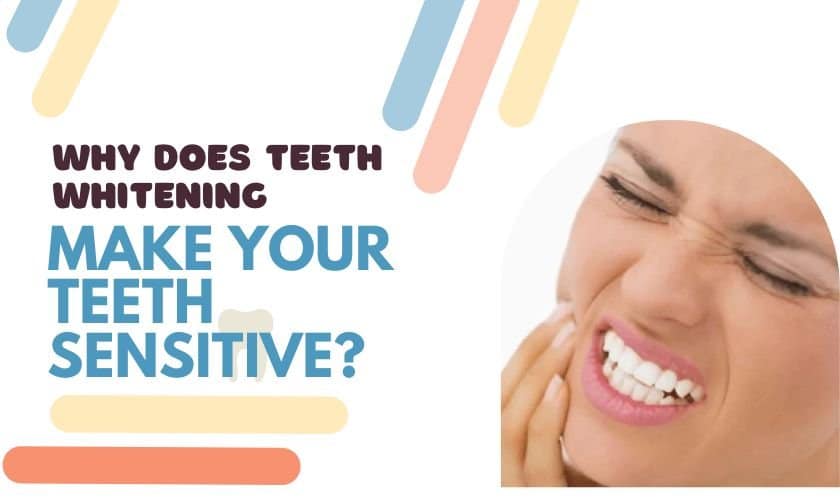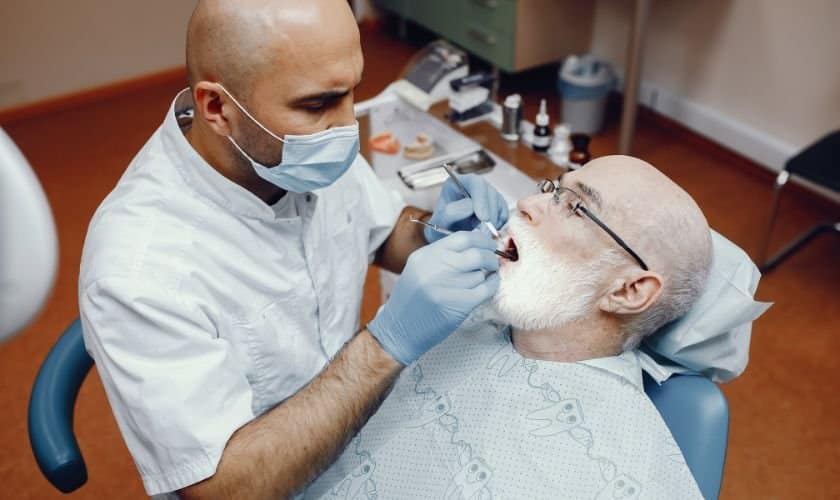
If you have undergone a teeth whitening procedure, you might have experienced teeth whitening-induced teeth sensitivity. It is a side effect that is very common and is not as uncomfortable as one may think it to be. However, if you are someone who already has the problem of teeth sensitivity, then teeth whitening could make the problem worse, and you might feel it challenging to consume hot and cold beverages and foods. But do you know why teeth sensitivity happens and the causes of it after teeth whitening near me? If not, read the article to know more.
How does teeth whitening work?
Professional teeth whitening uses whitening agents such as hydrogen peroxide and carbamide peroxide. These products consist of volatile oxygen molecules that break the molecular bonds that hold the organic stains onto the teeth. Thus the stains are removed, and the enamel appears in natural white color. The dentist will finally show you the level of shades to make you understand how much your teeth have become brighter than earlier.
What causes tooth sensitivity after whitening?
The bleaching solution used for whitening the teeth is one of the main reasons behind the tooth sensitivity that occurs after in-office teeth whitening near me. It removes the minerals from the enamel, which further causes the teeth to become temporarily porous. The dentinal tubules are exposed because of this. It is where the dental nerves are housed. It leads to an increase in dental sensitivity. A few days after teeth whitening, the minerals will be restored, and the tooth sensitivity will be resolved by itself.
The symptoms of tooth sensitivity
Tooth sensitivity may be mild to moderate. Not everyone experiences teeth sensitivity after treatment. For some, teeth sensitivity is experienced only while eating hot or cold foods, acidic or sugary foods etc. Some common symptoms of tooth sensitivity include sudden pain in the teeth that extends to the roots, sudden toothache when the teeth are exposed to temperature fluctuations and tooth pain when eating sour, sweet or acidic foods.
Considerations before whitening sensitive teeth
- Ensure that you find a quality teeth whitening product.
- Let the dentist check your dental health. It is because tooth sensitivity could be caused by underlying oral health problems such as gum disease, tooth decay, damaged enamel, and cracked or broken teeth.
- Limit the consumption of certain foods that can stain your teeth, such as red wine, tea, coffee etc.
- Opting for a teeth-whitening toothpaste that offers enhanced protection to your teeth and gums is desirable. It also offers long-lasting protection against tooth sensitivity.
- It is recommended to consider visiting a dentist and go for in-office teeth bleaching near me. The dentist will have the right expertise in using whitening gels in a controlled environment so that the soft tissues are not damaged.
How to reduce sensitivity tied to teeth whitening treatments?
There are various ways in which you can minimize sensitivity and pain.
- Take a break from teeth whitening treatments or at least reduce the frequency of teeth whitening treatments.
- Look for alternatives for teeth whitening treatment. If you feel that the bleaching gels cause teeth sensitivity, look for a whitening toothpaste instead that is a less-intense whitening treatment.
- Do not eat or drink food that may cause sensitivity to your teeth and gums, especially during whitening treatments.
- Sip your favorite drink through a straw since it protrudes past your teeth and thus does not cause sensitivity to the teeth for which teeth whitening treatment has been performed.
What to do to control teeth sensitivity?
- Discuss with the dentist that you have teeth sensitivity apart from teeth-whitening-induced sensitivity. They may prescribe teeth whitening products that integrate an anti-sensitivity medication.
- Take-home whitening kits may help reduce teeth sensitivity compared to in-office whitening treatments.
- Brushing and rinsing your mouth using fluoride mouthwash and using an anti-sensitivity toothpaste is also essential for controlling teeth sensitivity.
These are some of the various reasons one may experience tooth sensitivity after the teeth whitening treatment. Follow the procedures discussed in the blog to have pearly white teeth by controlling the teeth’ sensitivity.





